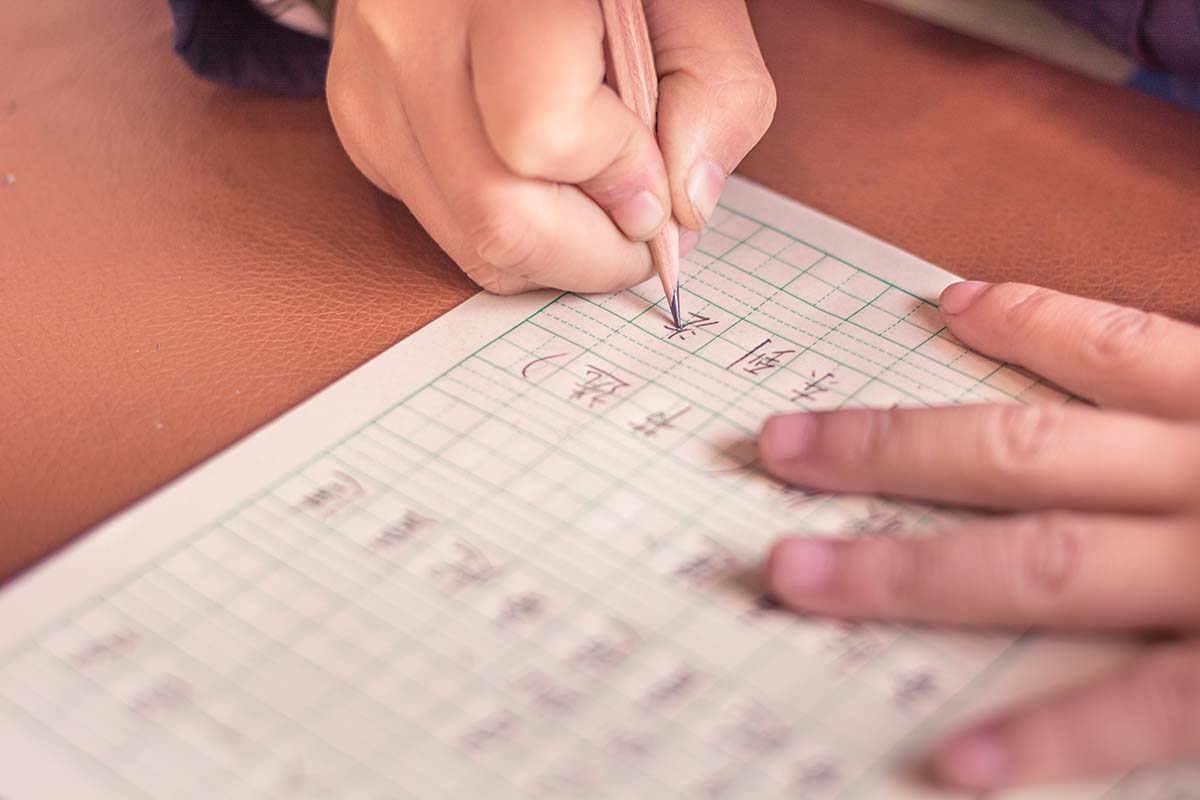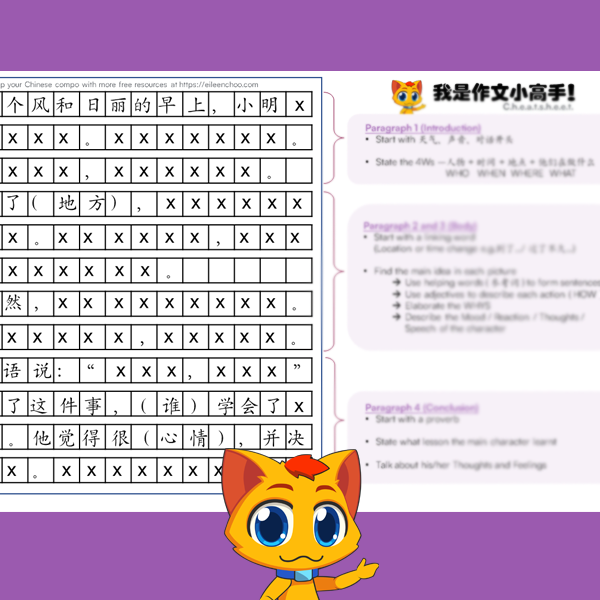Q: What is Higher Chinese in primary school?
A: Higher Chinese (高华) is the advanced version of the normal Chinese language curriculum that students take in primary school. A student who is taking Chinese at a higher level will usually be exposed to about 20-30% more words than what’s covered in the standard primary school Chinese syllabus.
Does this mean that Higher Chinese is hard? The HCL curriculum is definitely more challenging and requires a deeper appreciation of Chinese as a mother tongue language. Being able to apply higher-order thinking skills in both comprehensions and compositions is a must.
Here’s a table to help you compare the differences between Higher Chinese and normal standard Chinese.
Higher Chinese
Standard Chinese (Normal Chinese)
Assessable Components - HCL
Assessable Components - CL
If you decide on taking Higher Chinese, you should know that it’ll be an additional subject on top of the usual 4 subjects (English, Math, Mother Tongue and Science). This translates into an extra exam day at PSLE as well.
Q: When is Higher Chinese offered in primary school?
A: Aside from SAP primary schools which offer Higher Chinese as early as Primary 1, many Primary schools start offering Higher Chinese from Primary Three, and all will offer it in Primary 5.
Students who have obtained a Band 1 for all their subject in the subject based banding exam in Primary 4 will automatically be offered this subject. There are exceptions though. Students who have a Band 2 in one of the 4 subjects can still be offered Higher Chinese if they’ve shown potential in the language.
Q: Does higher Chinese help in PSLE?
A: With its tougher curriculum, the top question that I often get from many parents is whether Higher Chinese is worth taking.
That depends. If you’re planning to take Higher Chinese and use it to improve your PSLE score, you’re going to be disappointed.
With the new PSLE grading system, the possible Higher Mother Tongue PSLE grading are D for distinction, M for merit and P for pass. However, this is only an advantage IF you are applying for a SAP school in Singapore. If you’re planning to go to a non-SAP school, taking Higher Chinese does not give you any direct advantage in terms of score.
Hence, you might not want to take the additional subject unless you’re planning to go to a SAP secondary school in Singapore.
However, there are still some parents who opt for Higher Chinese although they are not planning to enter their P6 child to a SAP secondary school.
Q: Why take Higher Chinese if there’s no benefit for PSLE?
A: Not all decisions have to be made based on scores. For parents who look a bit further, here’s why they choose to let their child take Chinese at a higher level:
- To increase their child’s exposure to the Chinese language. Being able to appreciate and understand Chinese culture better opens up a whole new world of opportunities and perspectives later on in life.
- To boosts their normal Chinese results. With a more in-depth understanding of Chinese grammar and vocabulary, your overall Chinese standard will naturally improve. Even if their eventual PSLE Higher Chinese score doesn’t help them directly, the skills that they’ve gained along the way can help them score better for the PSLE Chinese exam.
- To better prepare for secondary school. This is applicable for those who are studying in a non-SAP primary school now and plan to join a SAP secondary school later on or the IP programme. Learning Higher Chinese at the primary level will give you an edge over your peers in secondary school. Less struggling equates greater confidence.
These are some of the advantages of taking Higher Chinese.
Q: What kind of child should take Higher Chinese then?
A: A child that likes Chinese and has good time management skills.
From experience. I can tell you that Higher Chinese is a very demanding subject. But despite its challenges, it can still be a subject that’s fun and enjoyable depending on your school teacher’s teaching style (yes, there’s an element of luck here =p)
I’ve taught many kids who come from Chinese speaking families and English speaking ones and the happiest students are always those who are genuinely interested in the subject.
Being good at a subject and liking it are 2 different things.
A child doesn’t have to be fantastic at scoring in a Higher Chinese exam on day one, but as long as they have the interest, they’ll eventually be able to overcome the challenges and get at least a merit.
However, if they don’t like Chinese from the start, forcing them to take Higher Chinese will be a painful experience for you and your child. So interest should always come first!
Then why is having good time management skills important?
Due to the workload of Higher Chinese, your child would have an advantage if they can juggle their time well. If they are struggling to cope with the extra homework, they may end up compromising their performance in their other 4 subjects. You wouldn’t want that.
Imagine spending the same amount of time across their 4 main subjects instead. You might see a more significant improvement in their results over time, so it’s all about balance.
Conclusion
I hope that this post has given you a better understanding of the benefits and potential challenges of taking Higher Chinese in primary school,
Whether you decide to let your child take this additional mother tongue subject now or later in secondary school, it’s important to ask your child’s opinion too. Ddo’nt forget to discuss the pros and cons with your child and hear how they feel before making the leap.
In case you’re worried about making an irreversible decision, you might be glad to know that there is still a possibility to drop Higher Chinese as a subject at the end of Primary 5 without any penalty should you change your mind later on.







